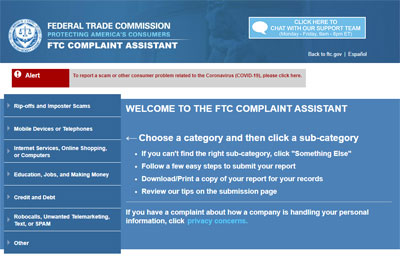Official Website of the
Catholic Diocese of Little Rock
Beware of e-mail, texting scams for money
Published: May 18, 2020
The Diocese of Little Rock is urging parishioners to be careful in opening emails or replying to texts that appear to be from Bishop Anthony B. Taylor or an Arkansas priest using a spoofed phone number, fake gmail account or other email accounts. The convincing emails and texts could also include their full name, address and photo.
Deacon Matt Glover, chancellor for canonical affairs, said, “One of these is particularly insidious since it references a priest being diagnosed with COVID-19 (which is false), in an attempt to scare the recipient into thinking that Bishop Taylor needs immediate financial help.”
 Parishioners are reminded that Bishop Taylor or priests in Arkansas would not personally send emails or texts asking for gift cards, money or any other financial assistance. Texts, email links or attachments should not be opened or replied to.
Parishioners are reminded that Bishop Taylor or priests in Arkansas would not personally send emails or texts asking for gift cards, money or any other financial assistance. Texts, email links or attachments should not be opened or replied to.
The Federal Trade Commission has sent out alerts about these scams.
"Scammers are good at convincing people there really is an emergency, so lots of people have made the trip to the Wal-Mart or Target or CVS to buy gift cards to send these callers. And scammers love gift cards — it's one of their favorite ways to get your money. These cards are like giving cash — and nearly untraceable, unless you act almost immediately," wrote Jennifer Leach, assistant director in the FTC's Division of Consumer and Business Education, in a blog post for the federal agency.
If someone has fallen victim to this type of scam, there is some help, but the victim has to act quickly.
"If you've bought a gift card and lost money to someone who might be a scammer, tell the company who issued the card," Leach said in her blog post. The contact info might be on the card, but might require some research.
"Call or email iTunes or Amazon or whoever it was," she continued. "Tell them their card was used in a scam. If you act quickly enough, they might be able to get your money back. But — either way — it's important that they know what happened to you. And then please tell the FTC about your loss. Your report helps us try to shut the scammers down."
The FTC has an online complaint page where victims can enter their information.








